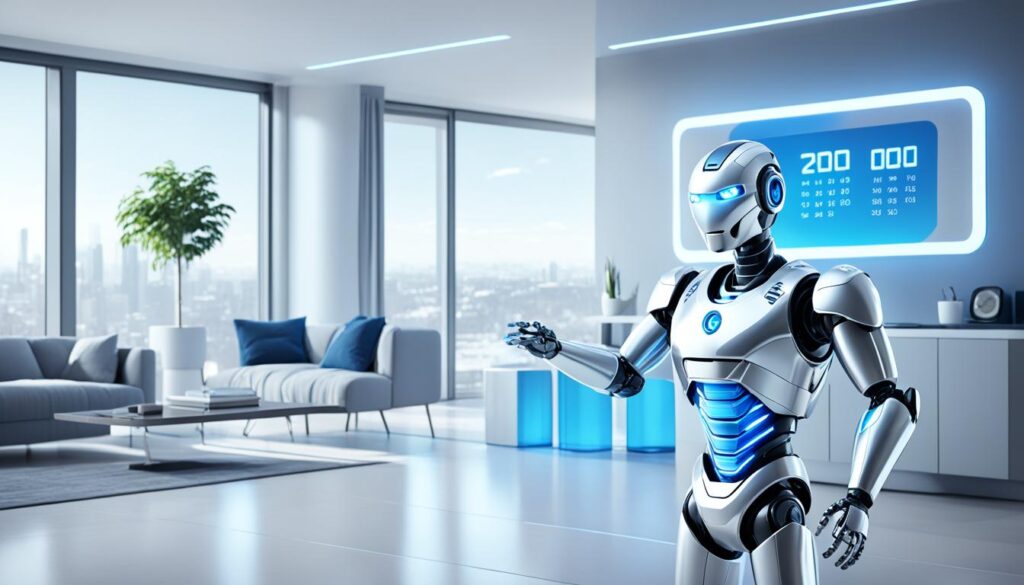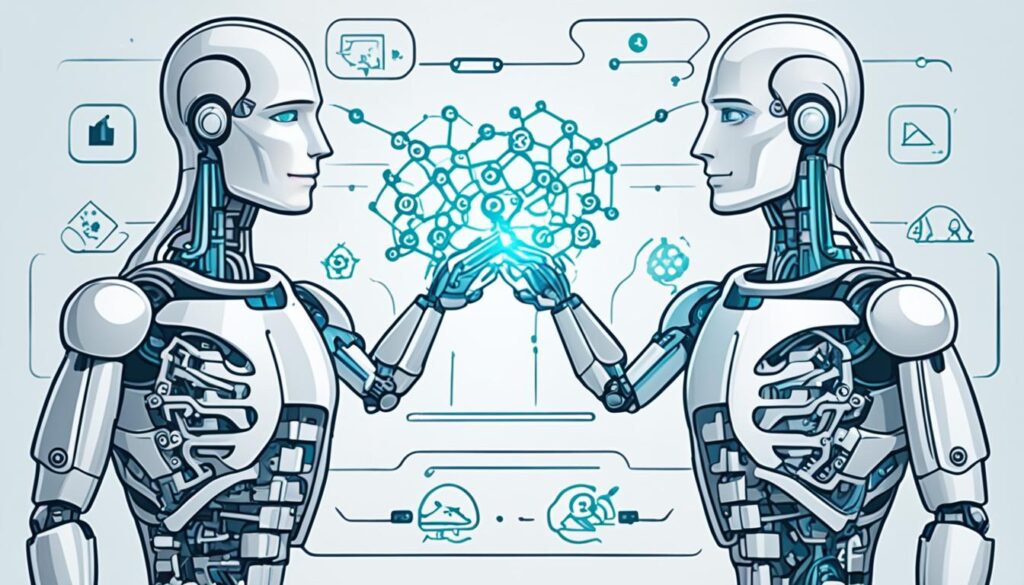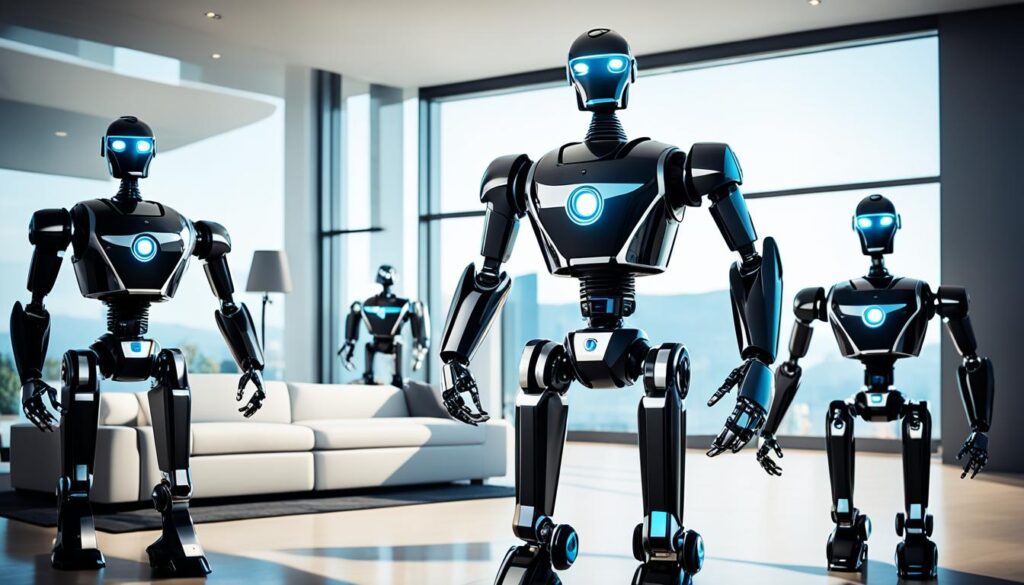Picture this: you have a personal assistant robot at your service. It’s there to help out anytime. This artificial intelligence assistant can improve how you use your time and inspire your creativity. It can even support you as a research helper, a coach, and your friend. Thanks to fast progress in artificial intelligence, robotics, and home automation, this dream is getting closer.
In recent times, people have started using ChatGPT in their daily and professional lives. They use it for various things, like planning trips, making dating profiles better, losing weight, and finding new homes. The ways we can use AI keep expanding, bringing new possibilities every day.
Experts in AI believe that within the next five years, having an AI personal assistant will be the norm. These robot companions could change everything about how we live, do our jobs, and connect with tech. But, it’s good to remember that the journey to artificial general intelligence (AGI) still goes on. This means the current technology might still make mistakes or show biases.
In the quest for smart homes and autonomous robots, we must consider how these advancements will affect our lives. The big question is, will we see robot butlers or humanoid robot helpers becoming part of our everyday world? Let’s explore this exciting frontier of AI and robotics together to find answers.
The Rise of AI Personal Assistants
Artificial intelligence (AI) is quickly advancing, bringing in a new age of virtual assistants. Soon, everyone might have an AI assistant. These assistants will change how we live and work, making us more productive.
AI Leaders Predict Personal AI Assistants for Everyone
Big names in AI, like Mustafa Suleyman of DeepMind and Bill Gates, say AI personal assistants will be common in five years. They will act like personal “Chief of Staff,” organizing our time, boosting creativity, and even keeping us company. As tech companies compete, we’ll likely see more affordable AI assistants, bringing them to more people.
Current Examples of AI Assistants in Personal and Work Lives
ChatGPT is a good example. It’s already helping both individuals and teams get more done. For instance, entrepreneurs use it to create apps quickly, while writers use it to brainstorm content.
At work, AI assistants are making customer support jobs better. Support agents with AI help are happier, more productive, and are more likely to stick with their jobs.
AI assistants are getting smarter and more useful. Tools like OpenAI’s chatbot can talk like a human. vimGPT can handle complex tasks like signing up for services or booking flights. Big tech companies are investing in AI to improve tools for us. For example, Microsoft has Copilot, and Google has AI agents that can plan and remember things.
AI personal assistants are changing how we work and live. They will be more available and affordable, boosting our productivity, creativity, and happiness. Using AI assistants wisely is becoming essential for our success in an AI-focused future.
Envisioning a Future with Robot Helpers
The idea of having a robot at home is getting more real. Think about a robot that cleans, does the dishes, and even puts them away. These robots will help you live more efficiently, giving you more time for fun.
Capabilities of Next-Generation Household AI Robots
Dr. Lila Patel, a leading expert, shared her thoughts on future AI robots. She imagines robots that can walk, talk, and remember things. These robots will learn to help you better over time. Dr. Patel even named a few, like “Caden,” her favorite.
Collaboration Between Humans and AI Agents in the Workplace
AI is also changing how we work, not just at home. For example, in healthcare, robots are checking on patients. Soon, we might work with these AI agents. Together, they will help us solve problems better and faster.
Overcoming Barriers: Trust and Privacy Concerns
But, there are hurdles to jump over. People worry about trusting AI and keeping their data safe. Making AI understandable and safe is critical. It’s important for developers to be sure AI doesn’t misuse our information.
The Gradual Adoption and Acceptance of AI Assistants
Accepting AI at home and work will be a slow process. People will learn to trust them more as they become a bigger part of our lives. There are debates: Will AI create or take away jobs? We will need to work on these challenges together.
AI-Assisted Living: Beyond the Workplace
As artificial intelligence gets better, it does more than just help us at work. It changes how we do things daily. More people are using AI to better their lives. This includes managing tasks, making smart choices, and improving how they live.
Using AI for Personal Tasks and Decision-Making
AI is already changing how we handle tasks and make decisions. Many are using AI tools, such as ChatGPT. It helps with everything from planning trips to bettering dating profiles. Users can make choices easier with AI’s help, using collected data to back their decisions.
Men improved their flirting with AI chatbots, which raised their chances of getting dates. A mother used ChatGPT to diagnose her son when 17 doctors had failed. These show AI’s power to boost our abilities and help in everyday life.
AI as a Tool for Education and Personal Growth
AI is set to change how we learn, offering personalized learning. Every student can now benefit from tailor-made learning paths. These paths are based on their own needs and learning style. With AI’s help, students can move at their own pace, getting the needed feedback and support.
AI is also great for creativity and personal growth. Its advanced algorithms can help generate new ideas and solve tough problems. This allows people to improve themselves in ways they never thought possible.
With AI becoming a bigger part of our lives, it’s reshaping how we do things. By using AI, we can improve both our work and personal life. This means working closely with AI to boost productivity, creativity, and satisfaction.
The Timeframe for Household AI Robot Availability
Having your own AI robot helper for daily tasks sounds exciting, right? Opinions about when these robots will become widespread differ. Some experts think we’re still many years away. Yet, others say we might see them much sooner. The speed of technological progress, costs, and how quickly these robots are developed all affect when we might get to use them.

Realistic Predictions for Public Accessibility
A recent study suggests that we could see big changes in the next decade. It might become possible to automate nearly 40% of our daily tasks. That means your own AI robot helper could be closer than you think.
However, the first available models might be quite pricey. This could make them too expensive for many people at first. But, as the technology gets better and cheaper, more of us will be able to afford them.
Factors Influencing the Development and Adoption of AI Robots
Many things affect how quickly AI robots for homes become popular. These include how tech is improving, making them cheaper, and dealing with worries about trust and privacy. Leading companies, like Sanctuary AI and Tesla, are making great efforts to create robots that act like humans, helping with various tasks.
It is tricky to design a robot that can do everything at home or at work. Yet, with AI moving forward so fast, these challenges might not last long. As making robots gets less costly and the technology becomes better, we could start seeing them in many homes. This might happen in just a few years.
Will I Ever Have My Own Helper Robot?
The future of owning a personal helper robot is tied to how fast technological progress moves. The adoption of AI in our lives is also crucial. Experts foresee a future where AI assistants are standard. But, key issues like cost, trust, and privacy must be sorted out first.
As technology improves, owning a helper robot could indeed become a reality. Big tech firms such as Google and Apple might lead in creating home robots. Estimates point to people willing to spend considerable amounts monthly on such technology. A useful home robot could be worth a few hundred dollars per month, benefiting you for years.
Yet, we must weigh the pros and cons of living with AI. A significant financial push and addressing ethical concerns are crucial for safe and dependable home robot use. Investors might find it a risky market due to the initial huge investments required.
Home robots may serve many purposes, evolving beyond chores to being personal trainers or tutors. If well-funded companies start investing more, we could see them assisting us within the coming years. The future of AI in our homes hinges on how quickly we innovate and accept this new technology.
The Symbiotic Relationship Between Humans and AI
Artificial intelligence is more integrated into our lives every day. A key goal is to foster a beneficial relationship between humans and AI. This way, we use AI’s strengths to improve our skills. The aim is a future where humans and machines work together effortlessly to tackle issues and improve choices.

Leveraging AI to Enhance Human Capabilities
AI has the power to make us more creative, productive, and efficient. It does this by tackling repetitive tasks and offering insights. This lets people deal with more demanding tasks. Tasks like those requiring intuition, complex problem-solving and experience-based decision-making. This relationship allows humans to use AI as a tool. It enhances their own smarts and skills.
The Continued Importance of Human Intelligence and Intuition
AI shines in crunching large amounts of data and spotting patterns. Yet, human intelligence is key for tricky and complex scenarios. Here’s where machines might find it hard. Human judgment and intuition are crucial. They are especially important in areas that need empathy, creativity, and ethical thought. As AI progresses, we must strike a good balance. This means using AI’s strengths while keeping human thinking at the core in an AI-support world.
Creating a good relationship between humans and AI is our way forward. AI can boost human abilities. Meanwhile, human brainpower and intuition are a must for understanding our complex world. By embracing this human-AI symbiosis, ethical guidelines are vital. They ensure that AI’s growth and use are for humanity’s best.
Preparing for an AI-Assisted Future
We’re heading towards an ai-assisted future. It’s vital for both people and society to get ready for the big changes AI will bring. We need to get used to new ways of working and living. Lifelong learning and upskilling are key to staying ahead in a world driven by AI. This is where giant language models and virtual assistants are taking the lead.
For AI to truly help, its development must be done responsibly. Businesses and governments should set up rules and guidelines for AI’s creation and use. These must focus on keeping data safe, avoiding biases, and being clear about how AI works. The aim is to ensure AI is fair and respects everyone’s rights.
Advanced AI tools are already here, like ChatGPT and the well-known Siri and Alexa. It’s important that we learn about them. Knowing their strengths and limits helps us get ready for a future filled with AI. This way we can fully benefit from its power, while keeping challenges at bay.
Obsidian, for instance, is a platform that can make AI more personal. It does this by keeping track of how you use it and connecting your notes. If more tools like this are made, it could completely change how we interact with AI. This would lead to smarter and more helpful AI assistants.
To make sure we thrive in an AI world, we need to welcome change. We should focus on developing AI the right way and get involved with new tech. This will allow us to tackle the future of AI hand in hand with technology. A future where AI and people coexist peacefully, making life better for all.
Conclusion
We are on the brink of a new era where having your own personal robot or AI assistant is a real possibility. The time when these assistants are widely available is not too far off. But, it depends on things like cost and solving privacy issues.
For this dream of living with AI to work, we must work together with it. This means using AI to make us better at what we do. It’s about making our lives richer and more efficient. Still, we must value what’s unique about being human. This includes dealing with complex problems and using our gut feeling to make decisions.
Getting ready for AI in our daily life takes effort. We need to be open to new ways of doing things. It’s about always learning and being ready to learn more. We also need to make sure AI is developed in safe and ethical ways. By doing these things, we can make a future where AI helps us grow. At the same time, we can avoid the dangers it might bring.
